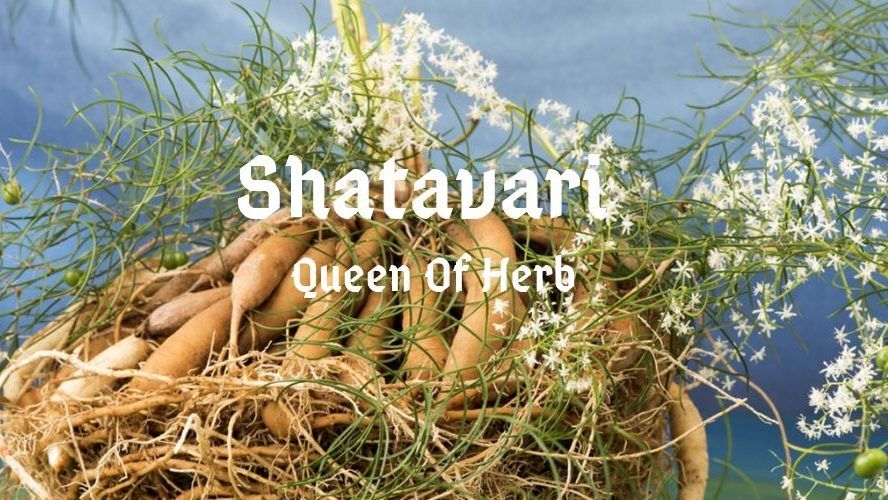Shatavari literally means a woman with 100 husbands. This indicates towards the strong hormonal and reproductive system of the woman making her able, fit and full of vitality. The plant is also called Shatamuli representing multiple roots in a bunch. Shatavari, Latin named Asparagus racemosus is called Asparagus in English. Various species of Asparagus has been used as a general tonic and as an aphrodisiac especially by women since long. Here, we will be discussing the health benefits of Asparagus from Ayurveda viewpoint.
Health Benefits Of Shatavari(Asparagus)
Plant Description
Asparagus racemosus, belonging to the Liliaceae family, is a thorny climber with smooth triangular branches. Tiny long, straight or curved thorns are seen and the leaves are a clade. The inflorescence of this plant is 1 to 2 inches long, white, single or bunched and with creamy white flowers. Tiny globose fruits become red after they ripe. The roots are creamy or whitish in color, many in number and are fleshy. These are distributed in up to 4000 feet altitude and are widely cultivated in Nepal and India.
Energetics of Shatavari
- Rasa (Taste): Sweet, bitter
- Guna (Quality): Heaviness, unctuous
- Virya (Potency): Cold
- Vipaka (Rasa essence): Sweet
- Dosha: Pacifies Vata and Pitta
- Chemical Constitution: steroidal saponins- sarsaponin, protodioscin, diosgenin
- Vitamins A, B, C, E, folic acid, amino acid asparagine, arginine
Actions And Therapeutic Uses Of Shatavari
- When applied externally, it has dosha pacifying and tissues strengthening effects. The oil-cooked with Shatavari, when applied locally, helps in headaches, Vata disorders, neurological problems, weaknesses and skin diseases.
- It is also a tonic to our brain, strengthens the nervous system and also has pain relieving effects.
- Due to its pitta pacifying property and its nature to stimulate biliary flow, it is used in hyperacidity, irritable bowel syndrome, hemorrhoids, and ulcers in the mucosa of GIT.
- Shatavari is good for the heart and helps reduce blood pressure, thus used in heart diseases, hypertension, and epistaxis.
- Woman’s support at its best – It can be the best tonic for pregnant women, those undergoing problems with their menstruation and specially before, during as well as after menopause, as it helps to balance the hormonal changes and deficiency, females go through in those stages of life. It helps nourish the fetus inside the womb and also promotes the formation of milk in the mother’s breast. This is why powder of Shatavari roots has been distributed for free by the government Ayurveda hospitals of Nepal in each district to the pregnant for the better health of mother and child.
- It also has diuretic properties, thus used in oliguria and difficulty in micturition.
- Rasayana – Shatavari promotes good health, vigor, vitality, and longevity. It has anti-oxidants in it, thus renders anti-aging effects keeping us younger.
The roots of this species of Asparagus are used, 10-20 ml if the extracted juice is taken, 3-6 grams of powder and 50-100ml if the decoction is to be taken.
In a nutshell, despite all the health benefits of Shatavari, it is used as a general tonic by both sexes and specially females. Like Withania serves as a rejuvenating tonic in male, Shatavari is specialized in improving female health in all ages. It is, therefore, woman’s support at its best and ultimately the Queen of Herbs.

